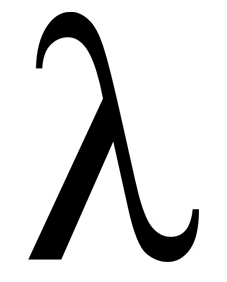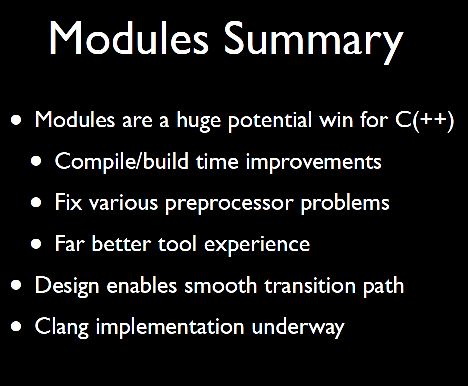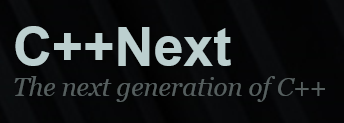Quick Q: So what's "lite" about "concepts lite" vs. full concepts?
There's a Q&A on StackOverflow, but see also the discussion about this in the March 12 Concepts conference call minutes that were posted here on the same day as the call. It's really more than minutes, it's also a record of discussion that answers this and other questions.
From SO:
What are the differences between concepts and template constraints?
I want to know what are the semantic differences between the C++ full concepts proposal and template constraints (for instance, constraints as appeared in Dlang or the new concepts-lite proposal for C++1y).
What are full-fledged concepts capable of doing than template constraints cannot do?

 In December, we
In December, we  This week, Faisal Vali shared an initial "alpha" implementation of generic lambdas in Clang. Faisal is the lead author of the proposal (
This week, Faisal Vali shared an initial "alpha" implementation of generic lambdas in Clang. Faisal is the lead author of the proposal (

